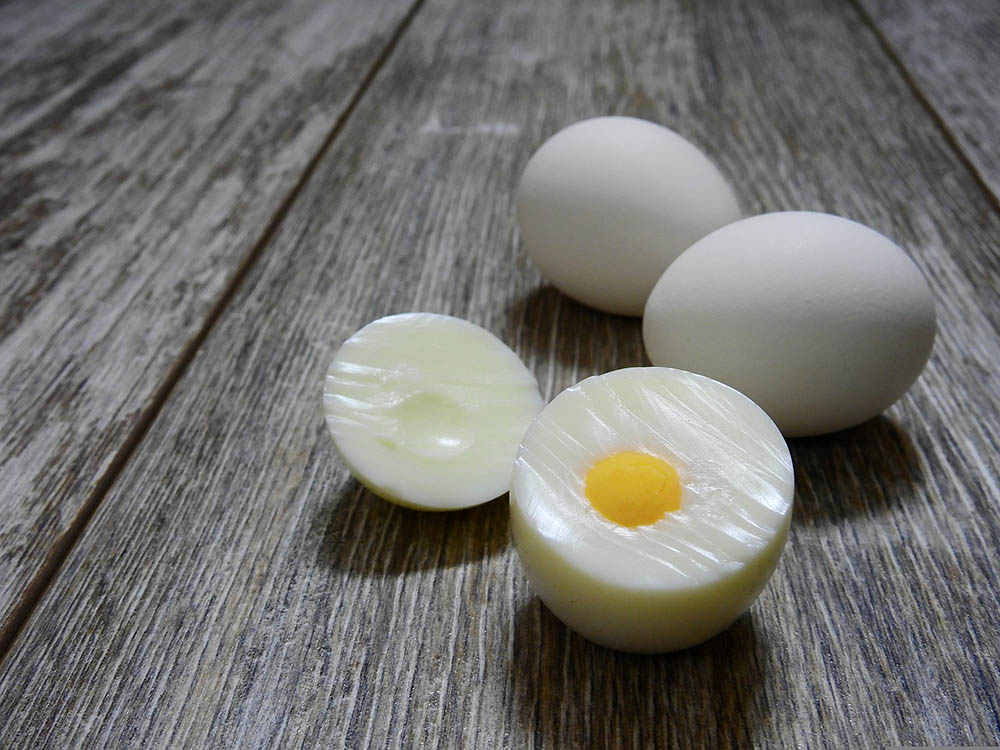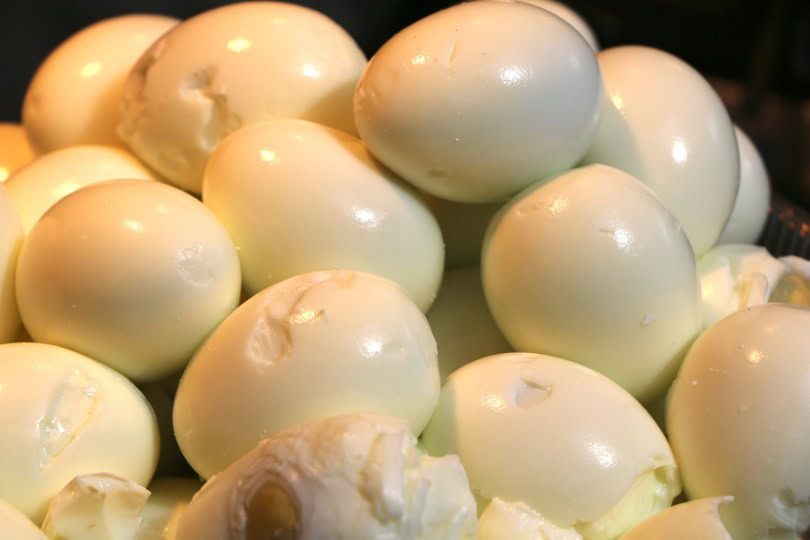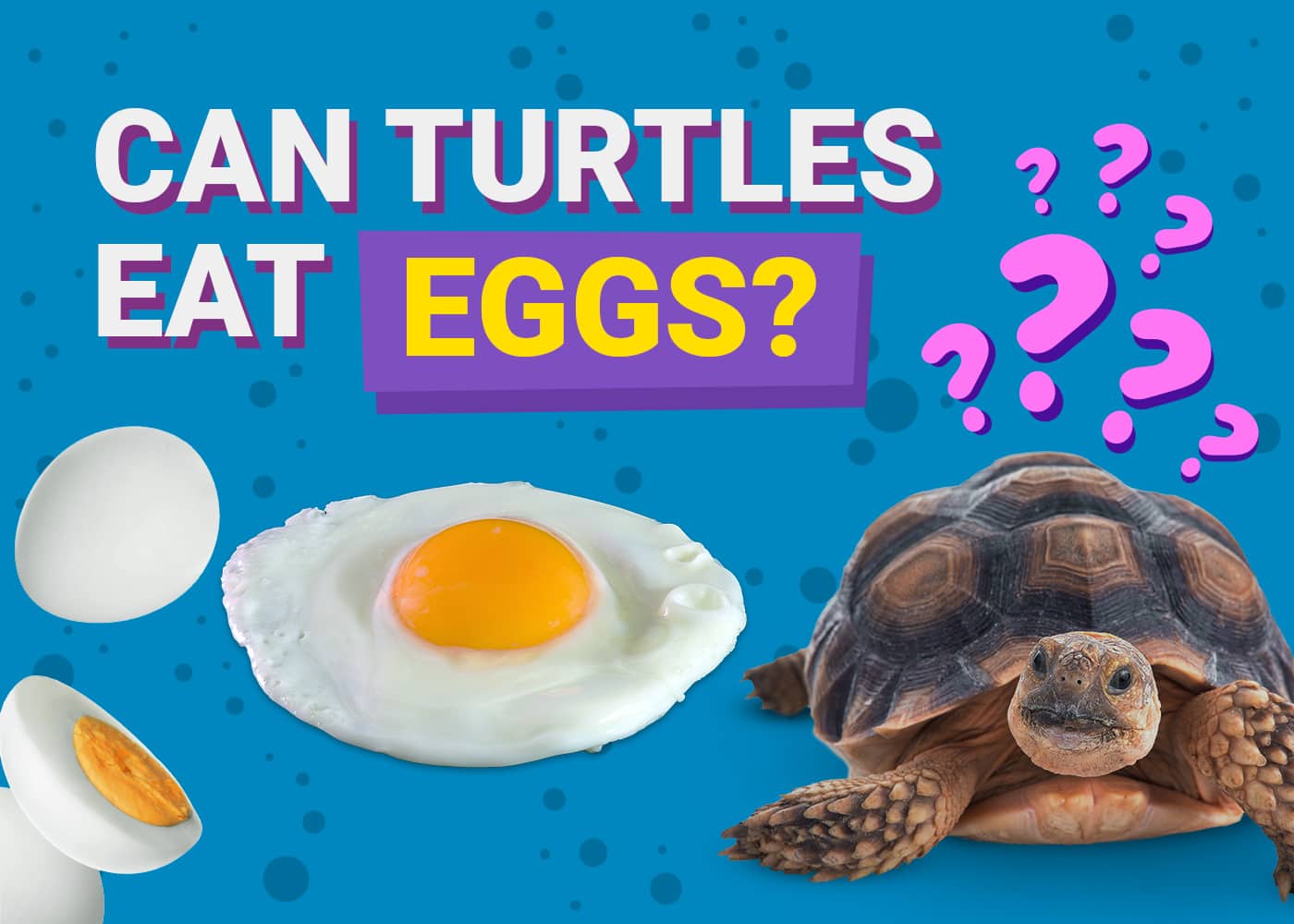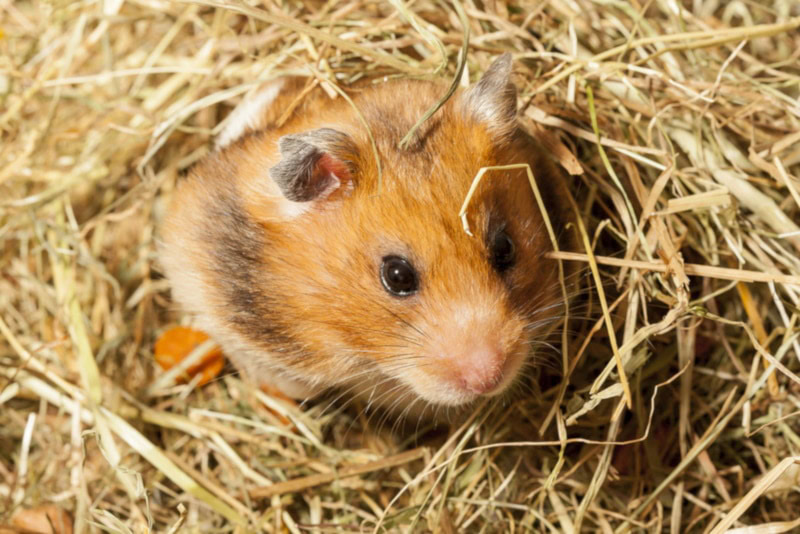VET APPROVED

The information is current and up-to-date in accordance with the latest veterinarian research.
Learn more »Turtles consume different foods in the wild, including eggs. When it comes to feeding pet turtles, you want to ensure that the foods you feed them are not only safe but nutritious, too. Whether your turtle can eat eggs depends on their species since not all turtles should eat them often. For most omnivorous species, hard-boiled eggs are considered safe. They are best when offered without the yolk.
There are over 350 turtle species, but only a handful are kept as pets. It’s essential to research the dietary needs of your pet turtle before adding new foods to their diet. In this article, we will be primarily focussing on the red-eared slider (Trachemys scripta elegans) and the Eastern box turtle (Terrapene carolina carolina).

Are Eggs Safe for Turtles to Eat?
It is generally safe for turtles to eat plain, hard-boiled eggs alongside their primary diet. You should only feed your pet turtle eggs sparingly and focus on feeding them foods that meet the requirements of a species-specific diet.
Most pet turtles are omnivores. Hard-boiled egg whites are considered a good source of protein for healthy adult turtles. In one study, healthy adult Eastern box turtles were offered hard-boiled egg whites for 15% of their food intake and developed no adverse health issues 1. Other sources have mentioned hard-boiled eggs in moderation (around 5%) for pet turtles as well 2.
Some turtles have been observed eating eggs in the wild since they are a natural source of protein and calcium. Eggs shouldn’t make up a large portion of a pet turtle’s diet, but they can be offered as a protein-rich treat.

Ideal Turtle Diet
It is important to consider your turtle’s species to ensure you can meet their dietary requirements. Feeding your turtle too many of the wrong foods can be harmful to their health. Omnivorous turtles generally consume plant and animal-based ingredients like turtle-based pellets, vegetables, insects, thawed feeder fish, and small fractions of fruit.
The amount of protein your turtle needs will depend on their species and life stage since some turtles need more protein than others. Juvenile turtles can be fed a diet higher in protein (provided it is moderately low in fat) because they are still growing, and the added protein may benefit their development.
As your turtles grow into adults, they don’t require as much protein. This is often true for most aquatic turtles. Box turtles, on the other hand, seem to do best on a diet around 50% animal-based foods and 50% plant-based foods. These plant-based options are further divided into 75% vegetables and 25% fruits.

What Types of Eggs Can Turtles Eat?
Below is a list of safe eggs that can be fed to pet turtles.
- Chicken
- Duck
- Quail
- Goose
Furthermore, besides the two species mentioned above, the following pet turtles can consume eggs as part of their diet.
- Florida box turtles
- Pond turtles
- Painted turtles
- African Sideneck turtles
- False Map turtles
- Musk turtles
- Wood turtles
- Spotted turtles
- Yellow-bellied turtles
Regardless of your turtle’s species, check with an exotic veterinarian to determine whether eggs are suitable for your turtle’s diet.

What Nutrients Do Eggs Offer Turtles?
Eggs are naturally high in protein, and the shell is a source of calcium for turtles. According to the USDA, the nutritional value of the various turtle-safe eggs is as follows:
One Chicken Egg:
| Protein: | 6.24 g |
| Fat: | 5.01 g |
| Calcium: | 24.1 mg |
| Phosphorus: | 92.6 mg |
| Vitamin D3: | 1.24 mcg |
One Duck Egg:
| Protein: | 8.96 g |
| Fat: | 9.66 g |
| Calcium: | 44.8 mg |
| Phosphorus: | 154 mg |
| Vitamin D3: | 1.19 mcg |
One Quail Egg:
| Protein: | 1.17 g |
| Fat: | 0.999 g |
| Calcium: | 5.76 mg |
| Phosphorus: | 20.3 mg |
| Vitamin D3: | 0.126 mcg |
One Goose Egg:
| Protein: | 13.9 g |
| Fat: | 13.3 g |
| Calcium: | 60.0 mg |
| Phosphorus: | 208 mg |
| Vitamin D3: | 1.7 mcg |
The eggs above can be fed to turtles as a nutritional treat. A single goose egg has the most protein, making them a great high-protein snack for adult turtles. The most common eggs fed to turtles are chicken eggs, which only have around 6 grams of protein. Duck and quail eggs are moderately high in protein, but geese eggs remain the highest source of protein.
However, feeding your turtle too much protein isn’t always better and may cause issues with their shell formation. We can see from the above table that all the eggs contain vitamin D3, an essential vitamin for turtles. It’s important to include vitamin D supplements in your turtle’s diet and allow them to synthesize vitamin D from the sun’s UV rays. The eggs also contain calcium and phosphorus, which are important for a turtle’s bone and shell health.
Overall, turtles don’t get all the nutrients they need from eggs, so they shouldn’t be fed too often. Feeding eggs to your turtle won’t make up for a balanced diet and supplements.

Feeding Eggs to Turtles
When feeding pet turtles eggs, they should be served cooked and not raw. It is best to serve hard-boiled eggs, but the shells should be removed. Eggshells are usually only safe for turtles if they have been ground into fine dust that can be sprinkled over their food.
Remove the boiled egg from the shell and break it up for your turtle into bite-sized pieces. You can give your juvenile or adult turtles a single boiled egg once or twice a week alongside a healthy and balanced diet.

Final Thoughts
Turtles can benefit from the added protein and calcium from eggs, although they shouldn’t be fed too often. Eggs should only be included in your pet turtles’ diet alongside a complete daily diet specific to their species. Most pet turtles enjoy eating boiled eggs from time to time, and the shells can be ground and sprinkled over their food as a calcium source.
- Related Read: Can Turtles Eat Chocolate?
Featured Image Credit: akirEVarga, Pixabay










